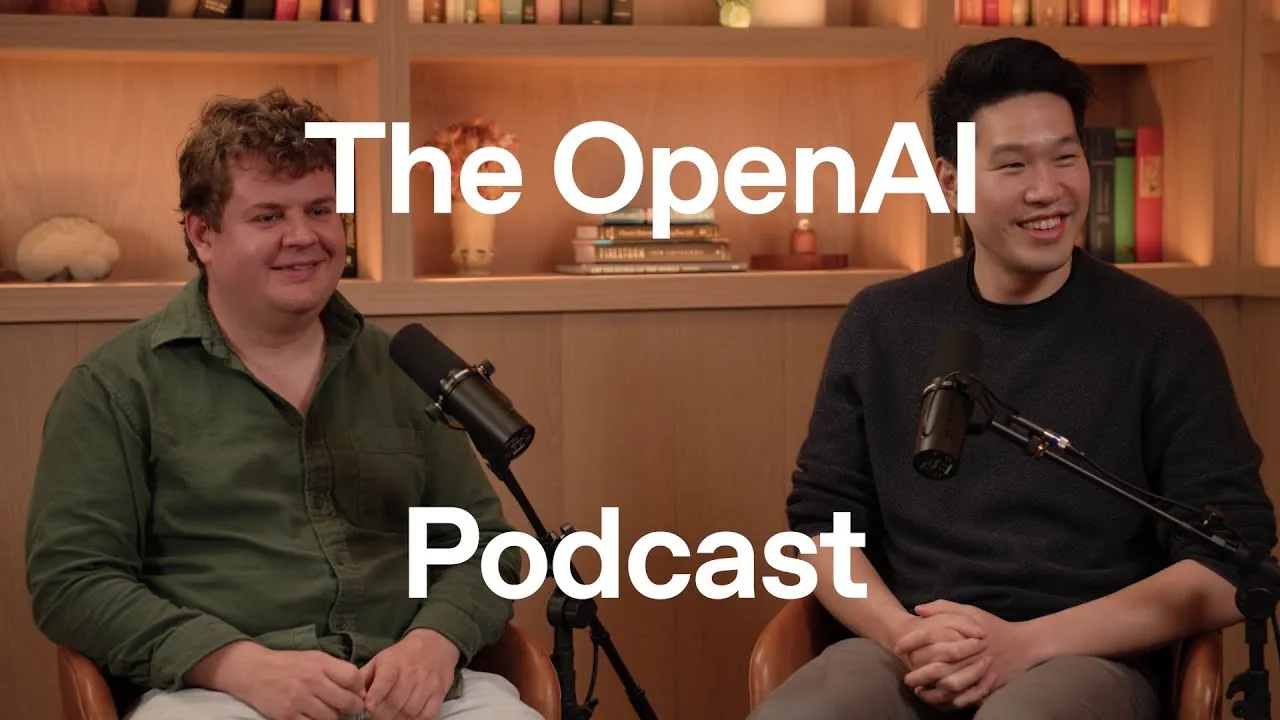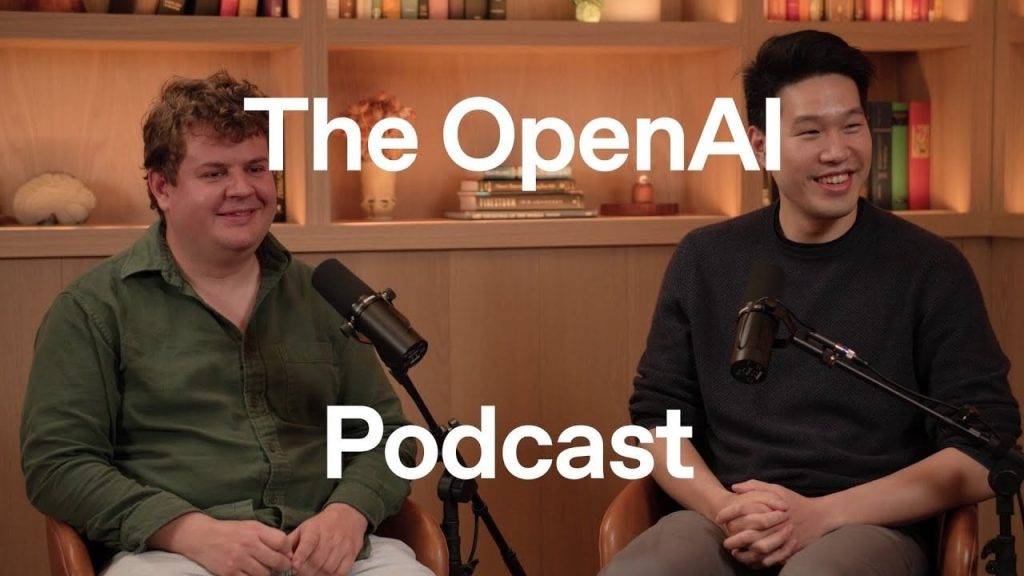
What if the tools you rely on every day could not only understand you but also anticipate your needs, adapt to your preferences, and evolve alongside you? This is the promise of AI assistants like ChatGPT, a technology that has rapidly transitioned from futuristic concept to an integral part of how we work, create, and connect. With its ability to generate human-like responses, assist with complex tasks, and even process images and voice, ChatGPT has redefined what it means to interact with machines. But behind its polished interface lies a story of relentless innovation, ethical dilemmas, and the delicate balance between personalization and neutrality. The rise of ChatGPT isn’t just about technology—it’s a window into the future of human-AI collaboration.
In this piece, the official ChatGPT development team take you behind the scenes at OpenAI, exploring how tools like ChatGPT are built, refined, and scaled to meet the demands of a rapidly evolving world. You’ll uncover the iterative design process that prioritizes user feedback and ethical responsibility, the challenges of mitigating bias, and the breakthroughs that have turned AI from a niche tool into a global phenomenon. From its origins to its expanding capabilities, this exploration will reveal not just how AI is transforming industries but also how it’s reshaping the way we approach creativity, productivity, and problem-solving. As you read on, consider this: what role will you play in shaping the future of AI?
ChatGPT’s Evolution and Impact
TL;DR Key Takeaways :
ChatGPT’s rapid adoption and success highlight its versatility in tasks like drafting emails and brainstorming, while OpenAI’s focus on user feedback has been crucial in refining its capabilities.
OpenAI employs an iterative design process, balancing personalization with neutrality to ensure ethical and adaptable AI development.
ChatGPT has evolved into a multimodal tool, capable of handling text, images, and voice, with features like memory and asynchronous workflows enhancing user experience.
AI is driving fantastic changes across industries, including healthcare, education, finance, and manufacturing, by improving efficiency and addressing complex challenges.
OpenAI prioritizes ethical responsibility, transparency, and user control in AI development, while fostering innovation through a collaborative and agile approach to address future challenges and opportunities.
The Origins and Unprecedented Success of ChatGPT
When ChatGPT was introduced, it quickly captured global attention, exceeding expectations and reshaping perceptions of AI. Designed as a conversational assistant, it gained widespread acclaim for its ability to generate human-like responses. Its rapid adoption, however, presented significant challenges, particularly in scaling infrastructure to accommodate surging demand. OpenAI’s commitment to listening to user feedback played a crucial role during this period, allowing the team to refine the tool and address its early limitations. By incorporating your input, OpenAI ensured that ChatGPT evolved to meet practical, real-world needs.
The tool’s success also highlighted the growing appetite for AI-driven solutions across various domains. ChatGPT’s ability to assist with tasks ranging from drafting emails to brainstorming ideas demonstrated its versatility and utility. This widespread adoption underscored the importance of creating AI systems that are both accessible and adaptable to diverse user requirements.
Iterative Design: Shaping AI Through Your Feedback
The development of ChatGPT is deeply rooted in OpenAI’s iterative design philosophy. This approach emphasizes fast feedback loops, allowing you to directly influence the tool’s evolution. By continuously refining the system based on user input, OpenAI improved its functionality while addressing concerns related to safety and transparency. This iterative process not only enhanced the tool’s performance but also reinforced the importance of ethical AI development.
A key aspect of this approach is the balance between personalization and neutrality. OpenAI enabled you to customize ChatGPT’s behavior to suit your preferences while maintaining default settings that prioritize fairness and objectivity. This dual focus ensures that the technology remains both adaptable and trustworthy, meeting the diverse needs of its users without compromising ethical standards.
Inside OpenAI, ChatGPT and AI Assistants
Uncover more insights about ChatGPT development in previous articles we have written.
Expanding AI Capabilities
ChatGPT has evolved significantly since its initial release, transitioning from a text-based assistant to a multimodal tool capable of processing text, images, and voice. These advancements have expanded its utility, making it a valuable partner for a wide range of tasks. Whether you’re brainstorming professional ideas, managing personal schedules, or seeking creative inspiration, ChatGPT’s enhanced capabilities allow it to align more closely with your needs.
Additional features, such as memory and asynchronous workflows, further enhance its adaptability. Memory enables ChatGPT to retain context over multiple interactions, creating a more seamless and personalized user experience. Asynchronous workflows allow you to engage with the tool on your schedule, making it a more flexible and efficient resource.
Beyond ChatGPT, OpenAI has developed other tools that broaden the scope of AI applications. Codex, for example, simplifies coding by automating complex programming tasks, while ImageGen assists the creation of high-quality visuals for artistic and practical purposes. These innovations demonstrate how AI can augment your capabilities, helping you achieve more in less time and with greater precision.
AI’s Impact Across Industries
The influence of AI extends far beyond individual productivity, driving fantastic changes across various industries. In healthcare, AI tools are transforming diagnostics by analyzing medical data with unprecedented accuracy, leading to improved patient outcomes. Similarly, in education, AI is personalizing learning experiences by tailoring content to your unique needs and pace, making education more accessible and effective.
AI’s applications also extend to fields such as finance, where it enhances risk analysis and fraud detection, and manufacturing, where it optimizes production processes and supply chain management. These examples highlight AI’s potential to address some of society’s most pressing challenges, from improving access to knowledge to enhancing public health and economic efficiency.
Challenges in AI Development
Despite its remarkable advancements, AI development is not without challenges. Bias mitigation remains a critical focus, as making sure fairness and neutrality in AI systems is essential for building trust. OpenAI has made significant efforts to address cultural sensitivities and user expectations, recognizing that AI must adapt to diverse perspectives and contexts.
Another challenge lies in balancing innovation with ethical responsibility. As AI systems become more powerful, the need for transparency, accountability, and user control grows increasingly important. OpenAI’s transition from static systems to dynamic, user-driven models reflects its commitment to creating tools that are both flexible and reliable. By prioritizing these principles, OpenAI aims to foster trust and ensure that AI serves as a positive force in society.
Fostering Innovation at OpenAI
OpenAI’s success is driven by a culture of curiosity and adaptability. The organization encourages experimentation through initiatives such as hackathons, which promote rapid prototyping and the exploration of new ideas. This emphasis on innovation allows OpenAI to remain agile, responding quickly to emerging opportunities and challenges in the fast-evolving AI landscape.
A lean team structure further supports this dynamic approach, allowing OpenAI to maintain focus and efficiency. By fostering a collaborative environment, the organization ensures that its efforts are aligned with its mission to advance AI in a way that benefits humanity. This commitment to innovation and ethical responsibility has been instrumental in establishing OpenAI as a leader in the field.
The Future of AI: What Lies Ahead
As AI continues to evolve, its potential to transform scientific research, problem-solving, and daily life grows exponentially. The development of asynchronous, agentic AI systems capable of handling complex, long-term tasks will unlock new possibilities for innovation. These systems could transform fields such as climate modeling, drug discovery, and urban planning, addressing challenges that require sustained and sophisticated analysis.
However, as AI becomes more integrated into your life, issues such as privacy, transparency, and user control will remain critical. OpenAI is committed to addressing these concerns, making sure that AI serves as a trusted partner rather than a source of uncertainty. By prioritizing these principles, OpenAI aims to create systems that empower you while safeguarding your interests.
Preparing for an AI-Driven World
Adapting to an AI-driven world requires a proactive mindset and a willingness to embrace change. By engaging with AI tools, you can demystify their capabilities and learn to use their potential effectively. Viewing AI as a collaborator rather than a replacement allows you to unlock new opportunities for creativity and productivity.
Delegating routine tasks to AI can free you to focus on higher-level problem-solving and decision-making, allowing you to thrive in an increasingly automated world. By staying informed and embracing the possibilities of AI, you can position yourself to succeed in a future shaped by technological innovation.
Media Credit: OpenAI
Filed Under: AI, Top News
Latest Geeky Gadgets Deals
Disclosure: Some of our articles include affiliate links. If you buy something through one of these links, Geeky Gadgets may earn an affiliate commission. Learn about our Disclosure Policy.

